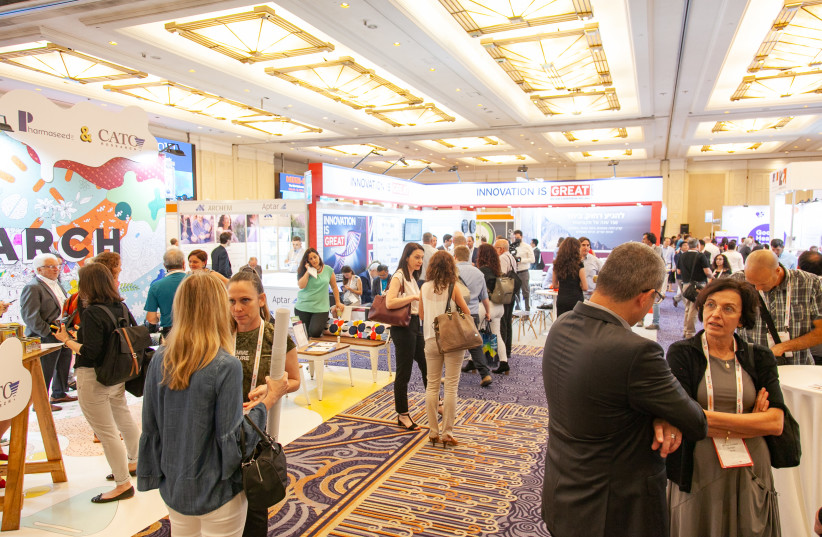Israel has gained a reputation as a global leader in medical and digital health system innovations, with breakthroughs reported recently in the ongoing battles against Alzheimer’s, cancer and heart disease.
The 21st BIOMED Israel Conference and Exhibition was held in Tel Aviv in mid-May. “BIOMED is Israel’s premier and most established life sciences conference,” its statement read, noting that this year the conference focused on aging and artificial intelligence.
“These themes reflect biomed exigencies resulting from an aging population with a variety of chronic diseases; a lack of medical professionals; a profusion of data which must be analyzed to realize its potential value; issues concerning the quality of life; and the escalating cost of healthcare,” the statement continued.
Even though Israeli hospitals and health funds are considered among the best in the world, there are only 30,000 doctors active in the country – 3.19 per one thousand people. Although the number has risen over the past decade, it’s still lower than the 3.5 average in the Organization of Economic Cooperation and Development (OECD).

Israel ranked sixth in the 2022 World Index of Healthcare Innovation, similar to its standing in previous years. “Israel’s performance was consistent across all dimensions, with particular strength in science and technology (ninth), owing largely to a robust scientific community supported by its world-class university system,” the report found.
Israel Medtech was established in 2020 to promote Israeli hi-tech companies specializing in medical technologies. According to the Israel Export Institute, more than 1,200 Israeli companies operate in this field, providing technological solutions to global challenges such as increasing home-based care, early diagnosis and preventive medicine.
Patients from abroad come to Israel to receive quality medical care and undergo a range of operations. Save a Child’s Heart, for example, has saved the lives of more than 6,600 children suffering from heart disease.
What are some of Israel's top medical innovations?
Among the top five Israeli medical innovations are the following:
- The Sniffphone, a diagnostic tool that sniffs out disease, is an evolution of the NaNose technology developed by Technion professor Hossam Haick, simplifying the diagnostic process by making the technology accessible via a plug-in that can be attached to smartphones.
- ReWalk by Argo Medical Technologies. After a tragic accident left him paralyzed from the waist down, Dr. Amit Goffer spent years developing a way for paraplegics to stand upright, walk, and even climb stairs with the help of an “exoskeleton” robot that receives movement signals from a wristwatch and is powered by a backpack battery.
- PillCam, a swallowable medical camera. Inspired by personal experience with chronic stomach pain, scientist Gavriel Iddan of Given Imaging (now Medtronic) created a digestible, disposable camera that transmits data to a receiver outside the body. The PillCam is now used to diagnose infection, intestinal disorders and cancers in the digestive system.
- The Flexible Stent. Millions of people owe their lives to the tube-shaped device used to open up arteries to treat coronary heart disease and blockages, eliminating the need for open-heart surgery. It was developed by Medinol, a company operated by husband-and-wife team Kobi and Judith Richter.
- The 3D printing of a heart with human tissue and vessels, produced by researchers at Tel Aviv University led by Prof. Tal Dvir. They now hope to produce hearts suitable for transplant into human beings, as well as patches to regenerate defective hearts.
A meaningful way of recognizing Israeli health providers who practice their profession with compassion is the annual Danielle Prize for Medicine with a Heart, established by philanthropist Moti Sonnenfeld in memory of his 20-year-old daughter, Danielle, whose plans to become a doctor were cut short by a tragic road accident in 2015. While Jewish tradition has always valued healing, Sonnenfeld recalls that Danielle used to say, “Even more important than the medicine itself is the way that doctors treat their patients and their families.
